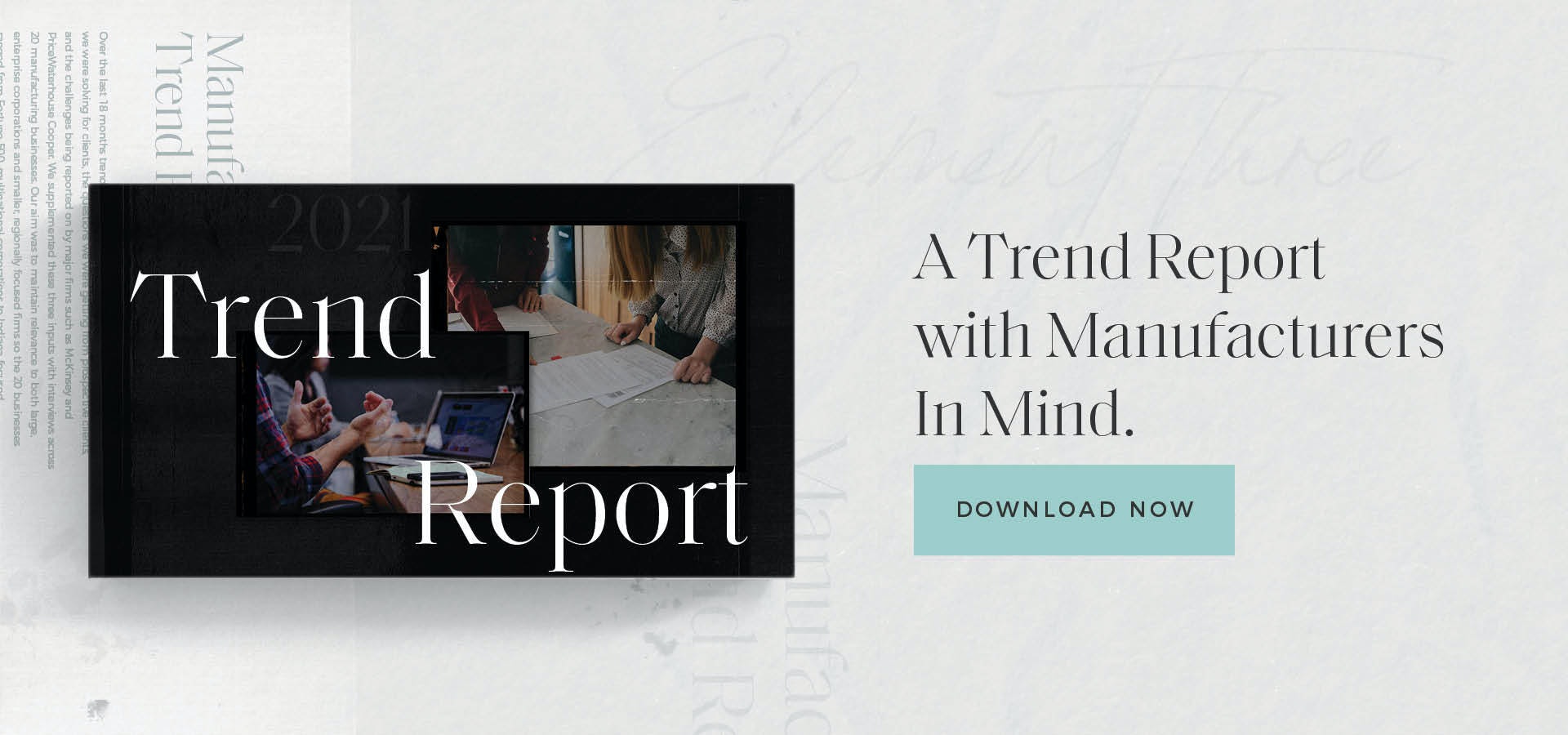As with any other hiring decision, finding a marketing partner is much easier when you follow a smart process. But unlike many other hiring processes, this one can demand a fair amount of resources—and the potential consequences of making the wrong call can be significant, in terms of the money spent and the results of poorly executed marketing.
The process may appear simple. But failing to follow it can be costly. So let’s take a look at three critical steps every business should take when they begin looking for a marketing agency, so your hunt doesn’t go awry.
Step 1: Research
Chances are, if you aren’t already a veteran of the marketing scene, you probably don’t currently know a ton about the lay of the land. And that’s okay. In all honesty, simply Google searching for what you’re looking for—”indianapolis marketing consultancy,” for example, or “chicago digital marketing”—isn’t a bad first step. It may seem like a somewhat amateur way to start researching, but remember that you’re looking for marketing. If it’s hard to find information about a marketing partner, it’s an indication that they struggle to market themselves—which may be an indication they’ll struggle to market your business, too.
Obviously it’s a good idea to know what kind of marketers you’re looking at before digging in any deeper. You know generally what you need at this point (although the marketers’ sales process might indicate that your real pain points are better solved in a way you may not have realized), so focus on potential partners that can clearly meet those needs.
As you do then dive deeper, here’s what to look at.
Where is the marketing partner located?
Distance doesn’t have to be a dealbreaker in 2021. We have the technology to connect over long distances easily, and after over a year of doing a lot of things remotely, most of us are more or less used to it. But that doesn’t mean distance isn’t a consideration at all.
Do you feel more comfortable working with people that you can see on a regular basis, as needed and as desired? Things like weekly in-person meetings aren’t going to be feasible if your business is in Cincinnati and you’re looking at working with an agency that’s in Milwaukee. Do you prefer holding meetings late in the afternoon? If you’re in Los Angeles, that means your 3pm status update call would be happening at 11pm in London, so that relationship probably isn’t going to work.
Think about how you prefer to work, and make sure that the distance between your headquarters and your marketing partner’s home base won’t throw a wrench in the works.
How large is the marketing partner?
A marketing agency’s size is going to dictate a lot about your relationship with them, and there are pros and cons to large and small marketing firms alike. A larger agency will have access to more—a wider range of specialists on their staff permanently, likely a more diverse history of work, and usually more potential partners for the specialties they might not be expert in. On the other hand, a larger agency might also lack flexibility in a few ways. If you’re a smaller client for them, sometimes they may have to drop everything (i.e., your work) to take care of a critical issue for a bigger client. They might be less willing to change on your behalf, and prefer instead to fit your needs into the way they already work. This won’t always be the case, as plenty of large agencies work well with clients of all sizes, but you should keep an eye out for potential problems as you research.
Smaller agencies, then, might be more willing to change things for your sake, and to shift in ways that will serve you. But they might lack the resources of a larger option, or they might not have the expertise to solve all the parts of your marketing problem in a cohesive fashion.
Some advice: it’s probably best to roughly match the size of your partner with the size of your business. You don’t have to get too in-the-weeds about it, but in general a multinational corporation is going to have less success working with a three-person marketing boutique, and a mom-and-pop bookshop doesn’t need to get a quote from Ogilvy.
Does the marketing partner get results?
An obvious question, but one that isn’t necessarily easy to answer. What exactly makes a marketing agency great? It might seem like something like awards and accolades might be a good hint, but they aren’t necessarily. Winning recognition is, obviously, a good thing, but if you’re not a marketing insider it can be hard to parse what matters and what doesn’t. Is a regional AAF ADDY Award better than a spot in the 2021 Who’s Who in Midwest Marketing list? Yes—because I made the second one up. But it’s not likely anyone who’s not in marketing will know that at a glance. If you do care about awards, make sure you do some research to make sure there’s some actual prestige behind them (and, well, that they actually exist) before using them as a determining factor in your choice.
Case studies and testimonials are far stronger endorsements of quality. Neither is perfect, because you have to view them through the proper lens. A marketing agency is unlikely to take the time to put together a case study that doesn’t show them in a great light. They’re also not probably going to share quotes from clients that had a bad experience. If you’re getting this information from the marketers, it’s going to be a bit biased in their favor. But numbers don’t lie. If the results are there—growing leads in quantity and quality, increasing sales, etc.—it’s hard to argue that the agency can’t get the job done.
And if you can, find some people in your business networks who have worked with the agencies you’re researching. Talk to them not just about whether they get the job done, but also how they do it. Do they work in a way that resonates with you? Do they sound like a group you could build a relationship with? If so, it’s worth continuing to pursue.
Step 2: Evaluate
The lion’s share of the real work is going to be done in the research process. But that’s not the end of the job. As you’re taking in all this information, you’ll already be beginning to organize and assess what you’re learning. Once you feel like you know everything you need to know, and you have all the relevant information at your fingertips, that evaluation process is key.
Know exactly what you’re looking at and precisely what that information is telling you before you commit to one marketing partner or another. Examine and evaluate everything you’ve gathered. Dig in as deep as you can and try to narrow the possibilities down to three or four that you really feel like you want to work with.
Step 3: Decide
Now that you’ve nixed the pretenders and settled on a few contenders, it’s time to pick a winner. If you haven’t already, this is where it’s a good idea to start reaching out to agencies to get a feel for them, their availability, and (this might be something of a surprise) their interest in working with you.
Just like your business has a “best possible customer,” marketing agencies are also looking to work with specific kinds of clients. And if you don’t match up with what they’re looking for, they may simply thank you for your interest and move on. And that’s actually a good thing! Great partnerships are rarely built on desperation, and if a firm is simply taking on all comers, they probably aren’t as committed to building real partnerships as they are to signing contracts.
There are a few other things you should keep in mind as you begin to vet potential marketing partners more closely. For one, do you like them? This might seem more like a perk than a requirement, but you’re going to be working closely together for (hopefully) years. If personalities don’t mesh, and your business’ culture and theirs don’t really match up well, it’s going to be harder to build the kind of close, collaborative relationship you’ll need to do truly great work together. When you start to talk to potential marketing partners, test that connection. Ask about their culture and the way they work.
You’ll also need to determine your own level of involvement in the work they’re going to be doing. There’s a range of participation from hands-off trust that they’ll get the job done all the way to engagement in pretty much every step of the marketing process. Depending on the type of marketing partner you engage and the kind of work you’re asking for, one extreme or the other might make more sense. If you’re hiring a small firm to execute on business card and stationery updates, you’ll probably be less intimately involved in the process than if you bring in a large consultancy to remake your brand.
That said, neither way is more right than the other. What’s important is setting those expectations and sticking to them. Don’t tell them you’ll be hands-off and then send back every potential new website page with 75 edits. Don’t tell them you’ll be in it with them and then go a week without responding to an email. Find the balance that works for your needs and theirs, and stick to it.
Finally, and hopefully obviously, before you take that final step of committing to one partner or another, make sure the terms are sound. Review the contract carefully. A firm worth working with is going to provide you with things like a proposal and a scope and statement of work, and you’ll want to make absolutely certain that it’s all in order before signing on the dotted line. Otherwise you might end up getting burned by something like a cancellation process that you aren’t familiar with, but is legally binding as it has your signature attached.
Avoid the trap of bad relationships
There’s a lot of pressure when you’re committing to spending a bunch of money on anything, and when it’s something as intricate as a collaborative business partnership, that’s only more true. Take some of the pressure off by instituting a smart process, and sticking to it from start to finish. Don’t fall into the trap of sinking money into the wrong answer for your organization.






